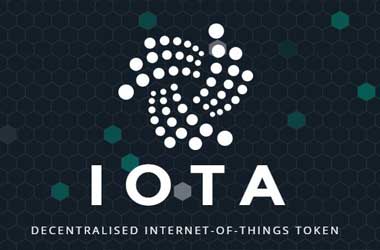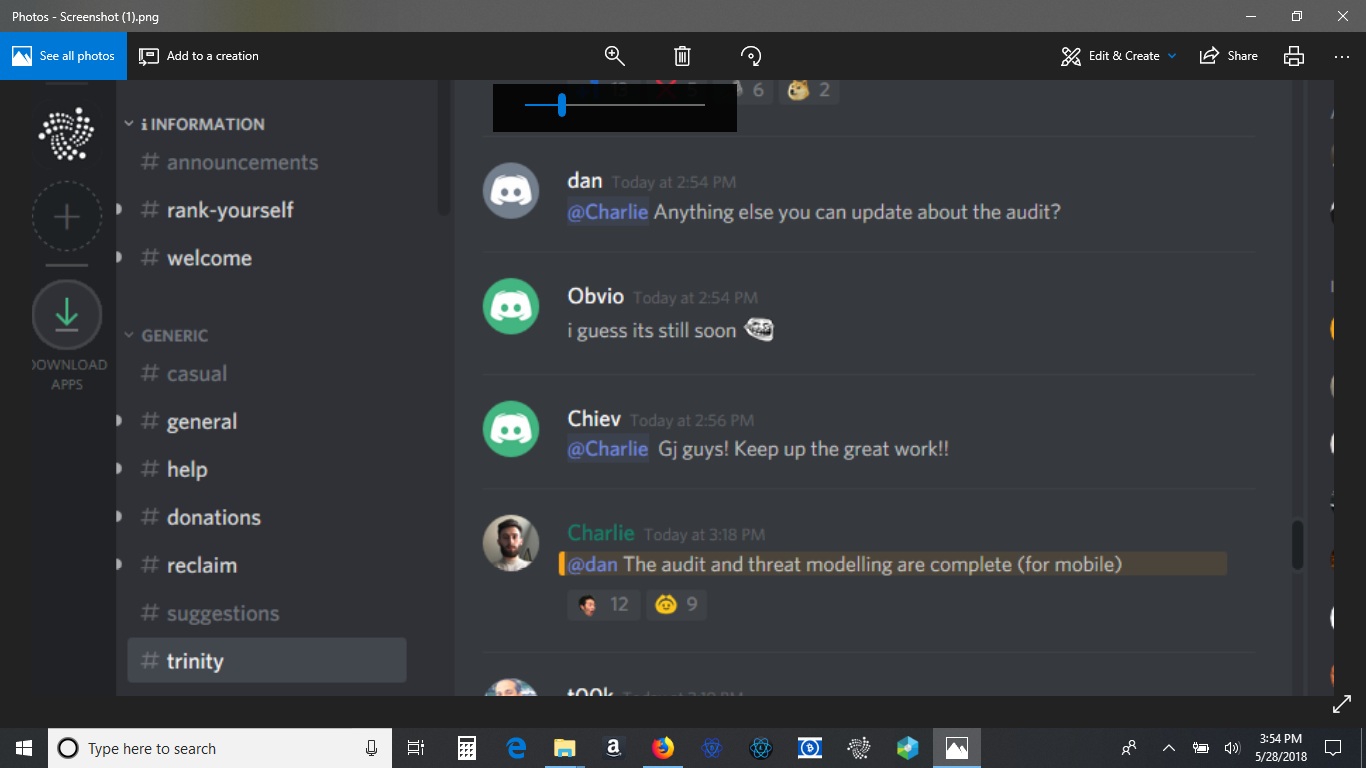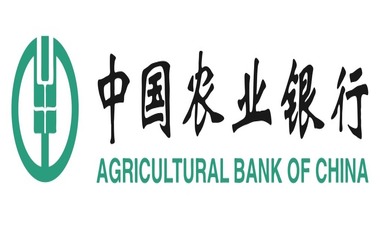 On March 30, the IOTA (MIOTA) team released the Trinity mobile wallet to testers, six days ahead of schedule. Additionally, the Trinity developer team opened a limited entry program for 100 new desktop alpha testers. Today, IOTA team has announced that Trinity audit and threat modeling for mobile wallet is complete. The desktop wallet audit is also expected to be completed soon.
On March 30, the IOTA (MIOTA) team released the Trinity mobile wallet to testers, six days ahead of schedule. Additionally, the Trinity developer team opened a limited entry program for 100 new desktop alpha testers. Today, IOTA team has announced that Trinity audit and threat modeling for mobile wallet is complete. The desktop wallet audit is also expected to be completed soon.
Once the audit gets completed, the project will move to a public beta test where everyone can try out the mobile wallet via the official app stores, without any special invitation. At this time, the developers will also release the full audit report and the complete source code for public review.
The developers are in touch with app stores to establish official IOTA Foundation accounts, under which the Trinity wallet will be published officially. This will further increase user confidence in the wallet.
The developers expect rapid progression to beta testing, given the cross-platform approach adopted. The developers insist that security audit will be performed prior to beta and full releases.

About Trinity Wallet
It is one of the latest innovations in wallet applications, released by a developer named Charlie Varley. The wallet was earlier known as UCL wallet (UCL stands for University College London where Varley studied). Later it was branded as the Trinity wallet. The wallet was initially developed as an alternative to the existing IOTA wallets – IOTA’s own official desktop wallet and a third party android wallet -available in the crypto market.
Varley’s project started as a one man project. Later, spotting the potential of the cross-platform application for mobile devices acting as an alternative to IOTA wallet, many of the IOTA community’s developers joined hands with Varley to take the project forward. That resulted in the addition of several new features to the Trinity wallet, while speeding up the wallet development process. Following this, IOTA Foundation, the Germany-based organization that is behind the IOTA project took interest in the project and included the innovative wallet technology in their ecosystem.
Furthermore, IOTA Foundation also hired Varley and his team. By January, the Trinity project came under IOTA Foundation. An official alpha test on iOS and Android, involving nearly 250 users began in the same month. At that time it was guaranteed that Trinity will remain open-source, similar to official desktop wallet.
Beta release
The beta release is expected to carry the following features:
- Statefulness — the wallet will maintain a record of your transaction history -and balances, thereby vastly improving loading time.
- Seed storage — the wallet will securely encrypt your seed.
- Seed generation.
- Multi-seed support — multiple seeds can be added and managed by one app.
- Snapshot transition — the wallet will handle snapshots. No more 0 balance post snapshot.
- Ability to print a paper wallet.
- Price graph.
- Address QR scanning.
- Support for many languages.
- Standard and expert mode — additional features and information displayed to more experienced users.
- Local and remote POW.
- Theme selection — choice of 8 themes.
- Fiat conversion across a range of currencies.
- Automatic fiat conversion on send — ability to send as fiat or iota value.
- Two factor authentication — TOTP for use in apps like Authy and Google Authenticator.
- Auto-promotion/reattachment.

 United States
United States United Kingdom
United Kingdom















